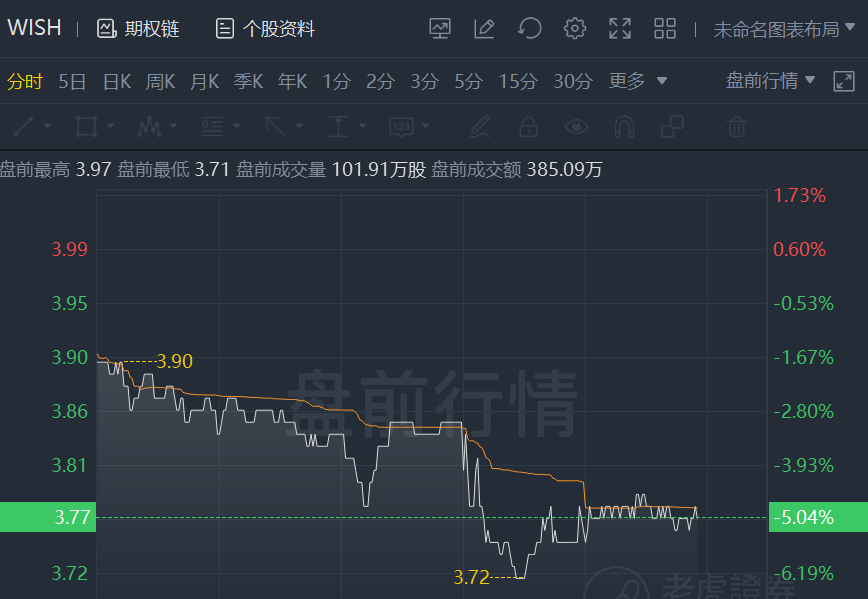ContextLogic shares fell 5.04% in premarket trading as France ordered websites to remove online marketplace Wish.

The French government, which has been investigating a number of online operators, said in a statement that its consumer watchdog had found a large proportion of products it examined on the Wish site to be dangerous.
The government said Wish, which is operated by ContextLogic Inc. based in San Francisco, had failed to recall them in a satisfactory manner and clearly inform consumers about the risks of some products sold through its platform.
"We are starting legal action to challenge what we consider an illegal and disproportionate act," Wish said in a statement.
Wish said it had always met demands from France's General Directorate for Competition Policy, Consumer Affairs and Fraud Control (DGCCRF) to pull items and had attempted to engage in a constructive dialogue with the consumer watchdog.
The government statement cited electronic goods including strings of outdoor lights and power adapters that could cause electric shocks, animal toys carrying choking hazards and jewellery containing dangerous chemicals lead and cadmium.
"We're asking for the delisting of the site on all search engines," Finance Minister Bruno Le Maire told France Info radio on Wednesday.
Out of a sample of 140 products, 45% of the toys, 90% of electrical goods and 62% of the jewellery items were dangerous, according to the watchdog. It said Wish removed items identified as being dangerous within 24 hours, but they often remained on the site in a different form.
Wish said that while it does not have a legal obligation to conduct controls on the 150 million products sold through its platform, it has invested in a number of measures to promote higher quality products.
The government said it had issued Wish with a two-month ultimatum in July to stop misleading consumers about the risks associated with some of its products.


